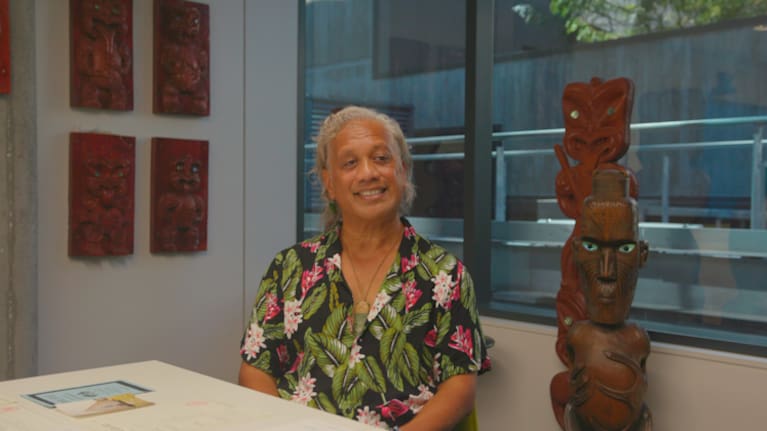As conversations around identity and culture gain momentum in Aotearoa, more Māori are choosing to reclaim ingoa whānau — ancestral surnames once lost, anglicised, or set aside through colonisation, migration, or necessity.
For many, this act of reclamation is about more than just correcting documents. It is a powerful way to honour whakapapa.
Re: News spoke to Tiaki Kerei (Ngāti Porou, Ngāti Kahungunu, Ngāpuhi, Te Rarawa) and Te Rina Triponel Ruka (Ngāpuhi, Te Atiawa, Te Aitanga-a-Hauiti) about what it means to reclaim a name — and the healing and homecoming that can come with it.
Watch the full story on TVNZ+
Ruka
Te Rina Triponel Ruka has made the decision to reclaim “Ruka,” the whānau name from her grandmother’s side, a choice that carries deep personal and intergenerational significance.
“My grandparents are part of the urban migration, you know, sold the idea of leaving their rural areas, their whenua, to move to the big city essentially, to put a roof over our heads and make money.”
Like many Māori families who relocated during the urban drift of the 1950s-1980s, the pursuit of economic stability came at a cost – the severing of ties to whenua, reo, and tikanga.
“And with that came disconnection.”
For Te Rina, taking back her whānau name is a form of reconnection – not only to her grandmother, but to the broader lines of whakapapa that shaped her.
She says reclaiming the whānau name was a way to honour her tupuna and grandmother.
“When we think about reclaiming indigenous names, it’s about having that sense of belonging.”
The many paths of reclamation
Professor Ella Henry, director of Māori advancement at AUT’s business school, says reclaiming an ingoa is part of a larger, layered journey of identity – one that looks different for every individual.
“Being Māori is a journey, it’s a journey of reo, whakapapa and sometimes a physical journey home to a marae you weren’t born around.”
She acknowledges that the path back to one’s ingoa is not always straightforward, nor does it need to be.
“I think there are as many diverse ways of reclaiming our ingoa as there are choosing whether or not to have a moko kauae.”
There’s no single ‘right’ way to reconnect, she says.
“Some people go home and they do it at home and they consult their kaumatua and kuia and some people don’t, and that’s all fine.”
Tiaki Kerei

Tiaki Kerei was born Jackie Grey, named after his late father. But his journey toward his Māori identity led him to embrace his father’s Māori name, not just in tribute, but as a way to strengthen and revive his own sense of self.
“Part of a journey in life is to get truer to the essence of who you are.”
In taking on the name Tiaki Kerei, he says he found not just a name, but a form of healing.
“It just occurred to me that my father’s ingoa in te reo Tiaki Kerei would be an important step to revitalise myself.
“It helped me get through some rough times, it helped me deal with some mamae (hurt) that was intergenerational and… it’s almost like I feel a korowai (cloak) around my shoulders.”
Watch the full story on TVNZ+










